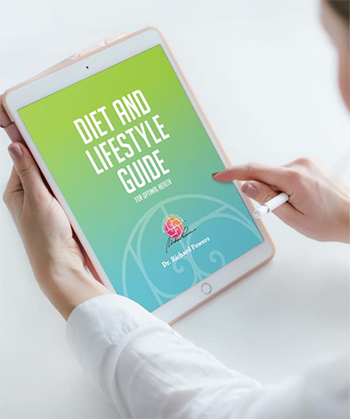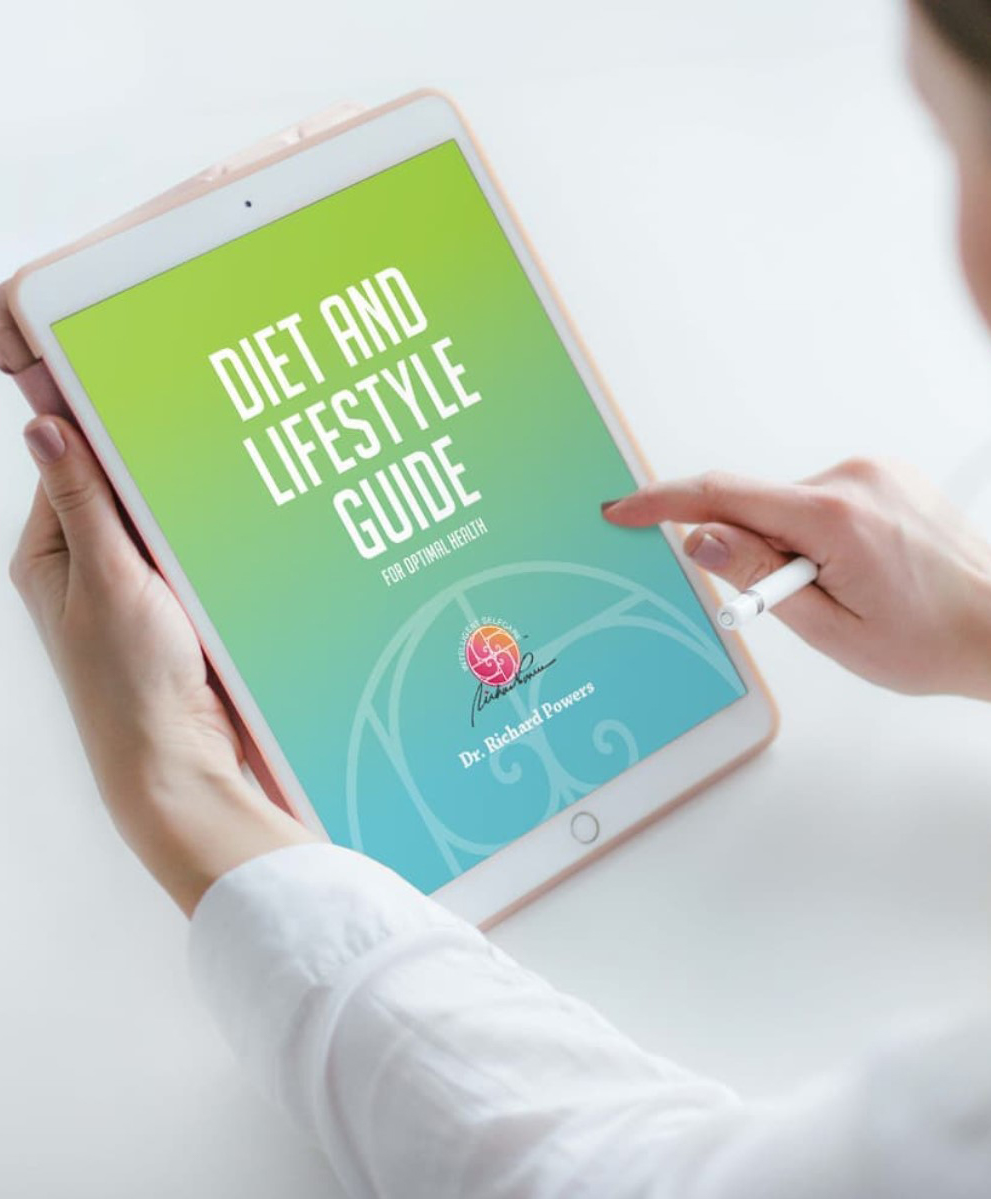
by Dr. Richard Powers
Infection Susceptibility – Are You Prone to Infection?
by Dr. Richard Powers
Want Infection Protection?!
Empower yourself and your immunity by replacing fear with knowledge so you may make your best decisions to help you take the most appropriate action to reduce your infection risk and live with less anxiety and greater peace.
Ignorance (or misinformation) often leads to … no or “ineffective” action resulting in … fear and potential harm.
Understanding (gained from knowledge) leads to … more safe and effective action resulting in … more inner peace and greater infection protection.
I provide the following information to empower you with knowledge so that ultimately you may have a better life.
How susceptible are you to infection?
Although it is difficult to determine how infection-prone someone is with absolute certainty, the following provides several key indications of increased infection susceptibility. (Note: The list is not all-inclusive; and blood tests offer additional infection susceptibility clues.)
Common signs of impaired immunity:
- Cuts and wounds become easily infected or tend to heal slowly
- Often sick, or slow to recover, e.g., an “annual” flu; frequent colds, sore throat, infections, etc.
Diseases associated with diminished immunity:
- Chronic health challenges, particularly diabetes; cancer; heart disease; hypertension; lung conditions
- Autoimmune disease; or multiple or severe allergies/immune sensitivities to food, environment, or chemicals
Factors that often sabotage immunity:
- Chemotherapy (radiation therapy) – currently or recently (last 6-12 months)
- Frequent or repeated use of steroids or antibiotics (especially within the past 12 months)
- Multiple prescription medication usages; frequent use of OTC drugs, e.g., for pain/inflammation; digestion
The greater your infection susceptibility, the greater the effort indicated to reduce your viral exposure and, perhaps more importantly, boost your immunity.
What if you are prone to infection
If after reviewing the “infection susceptibility” list above you conclude that you may have an increased risk of infection, you are not alone as (unfortunately) many people fall into this category.
One in four U.S. adults has two or more chronic conditions, while more than half of older adults have three or more chronic conditions. (Int J Environ Res Public Health)
No need to panic. Instead, minimize your pathogen exposure, and take action to boost your natural immunity by:
- Eating, moving, and sleeping more consistently with your natural design
- Ensuring optimal nutrient sufficiency and judicious use of safe and effective natural medicine
This one-two punch significantly reduces your risk of infection! … and all the while bolstering your vitality and reducing your risk of premature death from the same chronic diseases which predispose you to infection (cardiovascular disease; hypertension; cancer; diabetes; autoimmune disease; etc.).
Antiviral natural medicine offers safe and effective immune support by conferring passive immunity; priming and mobilizing neutrophils/macrophages; increasing IFN-g; inhibiting viral entry or disrupting viral capsule; or inhibiting viral replication; e.g., botanicals (Andrographis; Elderberry); immunoglobulins (serum or hyperimmunized egg powder); beta-glucan; monolaurin; etc. (references within this document here)
Note: Pharmaceutical drugs (antivirals, e.g., Valtrex; antibiotics, e.g., Amoxicillin), do not positively influence the body’s natural immune response; often have limited effectiveness; and have associated and inevitable undesirable consequences – which are often undocumented and poorly disclosed.
QUESTIONS ON MANY PEOPLE’S MINDS THAT ARE OFTEN INADEQUATELY ADDRESSED:
Why do viral infections (including COVID-19) affect people so differently?
For most people the answer is clear:
The health of one’s immune system upon exposure to the virus determines the course and severity of infection.
- Individuals with a healthy, robust, and “balanced” immune system will more quickly detect and respond to initial viral exposure. The virus is extinguished before it has had an opportunity to rapidly replicate and proliferate. Few, if any, symptoms appear, as the immune response occurs quickly, unnoticed in the “background,” as it does so day in and day out.
- Infections become serious and life-threatening when our immune system is slow to detect the virus, and when it does, it fails to mount an adequate response. The virus is then able to multiply and spread. This triggers an “emergency” immune response which may excessively ramp up inflammation (e.g., cytokine storm) and induce microvascular damage. Infection and fluid accumulate in the lungs, subsequently making it difficult to breathe and resulting in hypoxia … hence the necessity for a ventilator.
Imagine the collateral damage resulting from an all-out war that destroys the enemy (virus) but in the process also harms the “friendlies” (the body).
Infection risk = Microbe exposure meets Host resistance
You are MORE susceptible to infection when:
⇒ Your exposure to virulent “toxic” microbes exceeds your body’s natural resistance (immunity)
You are LESS prone to infection when:
⇒ Your immune system is strong, balanced, and able to quickly detect and kill invading microbes.
Are older people more susceptible to infection?
- It depends on the microbe (virus, bacteria). As a general rule, the most susceptible population at risk for a serious infection are almost always in the older age bracket … but, not because of their age!
- It is because the older you become the more likely you have developed chronic disease, poor health, and take multiple medications – all of which correlate with increased inflammation, decreased immunity, and poor healing response – and as a result, increased infection susceptibility. If you are truly healthy (feel and function well) in your senior years, your infection risk is much lower than those who are not healthy.
Why do some children, adolescents, and young adults still develop serious infections?
- Oftentimes the “younger” individuals who develop serious infections already possessed a compromised or imbalanced immune system – diagnosed or not – predisposing them to infection. Unfortunately, these immune and other challenges often go undiagnosed until after the presentation of multiple, prolonged, or serious symptoms.
Why do some people who seem healthy develop infections?
- The real question to ask is, “were these people who seemed healthy truly well prior to becoming infected?” In many instances, probably not.
- A lack of symptoms does not equate to being healthy. (Think of those people who go from “apparently healthy” to a diagnosis of stage-4 cancer. Yet, cancer takes years if not decades to develop.)
- Very often underlying conditions remain undetected even after receiving the customary yearly “physical” evaluation which doesn’t necessarily dig below the surface in search of the developing disease.
![]()
Shop: Dr. Powers’ IMMUNE Bundle (Immune Program)
Shop: Optimizing Your Immunity: A guidebook for infection protection and illness recovery








